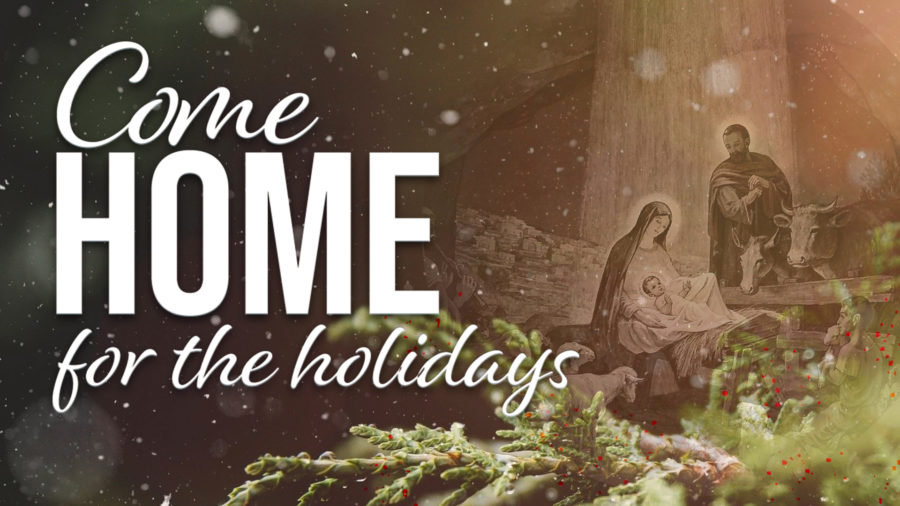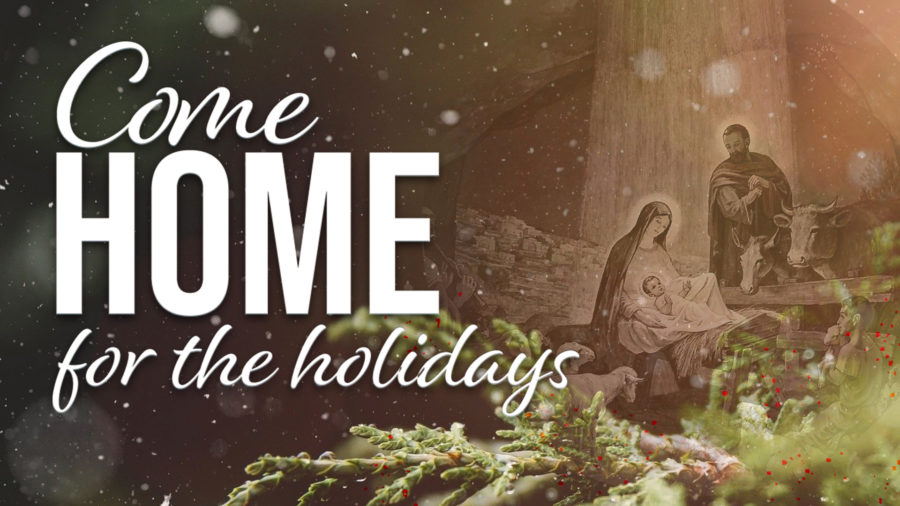We all, at least some of the time, are in circumstances we don’t like. The apostle Paul found himself in a circumstance he didn’t like 100% of the time: PRISON. Yet he thrived in those limiting circumstances. This was evidenced by the fact that he was inspired of God to write parts of the New Testament as well as lead some officers of the Roman empire into a personal relationship with Christ. How? Paul never forgot his primary identity was: in Christ. He never calls himself a prisoner of Caesar, instead he refers to himself as a prisoner of Christ. In other words he never saw circumstances beyond his control as limiting God’s will for his life. While in prison his relationship with the Lord was so dynamic, he referred to some of his experience as a revelation. Who of us would not embrace negative circumstances in order to have direct revelation from God. So the next time you have circumstances that seem to limit you, never forget God controls circumstances beyond your control. And in those circumstances we can find God‘s will. Then you won’t just survive the negative circumstances, you’ll have an opportunity to thrive in those circumstances.
It’s been such a privilege to serve Laurelwood these last 17 months. Gwyn and I will keep in touch and see you occasionally. For example we will be back October 9 for Pastor Erik‘s Dedication Sunday. In Christ together, Dennis.
dentity is so important. I once was Christ less, hopeless and godless, but at 15-years-old Christ became real to me. I understood that he had died in my place and made peace with God for me. This gave me personal access to God I had never known. When I became a Christian, God didn't jump out of heaven and shake my hand. There was not a chorus of angels singing in the background, but I did sense His peace. What Christ did for me in that moment was awesome. He created for me a destiny built on the foundation of the apostles and Christ. I was no longer a stranger in God's kingdom. I was a fellow citizen with millions of Christians. I had a new destiny: heaven. It was not something I earned, but Christ brought me near to God through His blood. I discovered who I was in Christ was the foundation for what I did for Christ. If you don't put your who before your do, then you may be guilty of moralism. Where do you put your faith? Is it what God has done through Christ in your life or is it your good works? Our standing before God is a gift received not achieved. I choose the gift plan, how about you?

I went through officer candidate basic training at Fort Lewis Washington. If you don't know, a drill sergeant has complete control over your life for 10 weeks. When you eat, when you sleep, when you shower, when you train, when you go to class, etc. I'm sure every troop in basic training feels like the drill sergeant picks on him, but after doing 20 push-ups on many occasions I felt my paranoia was justified. But everything changed after I graduated from the officers' candidate boot camp and received my Lieutenant status. Suddenly this drill sergeant was under my command. He immediately saluted me. Now any second lieutenant knows a drill sergeant knows a lot more about the military than he does and, so, the lieutenant is simply the person that negotiates the commands received from headquarters to the troops in the field. A smart second lieutenant always asks the sergeant what he thinks the best plan is for the battle ahead. But my point is that in a moment the drill sergeant who was over me suddenly became a sergeant who was accountable to me. Likewise, the moment you become a Christian, you are changed in relationship to the world, the flesh, or the devil. They had control over you up until that moment of faith. Once you're in Christ, you have been given the power over the world, the flesh and the devil. In a moment your position in life and eternity changed, before you had little choice but to obey your old sergeant, the WFD, but now that you are "in Christ" and by faith in Him and the word of God, the world, the flesh and the devil are under Christ's control. They do not have control over you but are subject to you by the power of the Holy Spirit. Being "in Christ" transformed you from death living to life living "in Christ". If you abide in Him and He abides in you, ask what you will, and it shall be done. Your new position in life takes you out from under the control of the WFD, as you surrender to the control of Christ. Don't let the devil convince you he is still under his control. Since you are "in Christ" you are no longer under the devil's command to having authority over him.

The first half of Ephesians 1 is a great reminder that God has called and adopted us into His family and wants to unite all things in Him. The second half of Ephesians 1 is Paul’s prayer for the Ephesians, and here we see a beautiful picture of how to pray for one another. Even though this is Paul’s prayer for the Ephesians, it is still just as meaningful and applicable today. We too can pray like Paul and experience the greatness and power of God. This Sunday we will look at Paul’s prayer and even take time to pray for one another, so together we might experience the name that is above all names.

Our obedience crisis is really an identity crisis. So, in what ways have we failed to understand our new identity in Christ? We must remember that our relationship with Christ is not something we earned. We are changed by His grace and have been forgiven by His grace. Why then did Christ do this great work on our behalf? First and foremost, remember it's a mystery (see Ephesians 1:9). But God’s mystery is found in His grace, His mercy, His kindness, His purposes, His promises, and in the inheritance He gives us. How all these things work together for our eternal benefit is a mystery that may only be revealed in heaven. This Sunday, I hope to give us a taste of what that mystery might include. It is not a mystery that all these benefits deserve our praise and worship. The Holy Spirit empowers us to live the Christian life. Let's find our new identity and our other benefits in Christ. This Sunday we will look at a full platter of God's benefits that help us to become all that God wants us to be.

As children most of us discover the harder we work, the more the benefits. So as adults we feel the need to work. And more people could benefit from a good work ethic. But as Christians we may say to ourselves "it may have been necessary to respond with the work ethic to life's challenges as a child but now I want to explore, by faith, new ways to follow Christ." So often we work for and pray for what we already have "in Christ." In the book of Ephesians, especially the first couple of chapters, we will learn that our identity "in Christ" is foundational to be a maturing Christian. By faith we're joined with Christ in his death and resurrection. When we focus on rules, we may think rules give us power. But when we focus on our identity "in Christ" we find supernatural power. I hope to show, for most of us, how our obedience crisis is an identity crisis. For example we cringe at the idea of being a "saint" yet we are saints "in Christ." Sixty-two times the scripture affirms this new relationship. So if I'm a saint, why do I have difficulty in doing right? If you focus on your ability to obey, you will have only partial success. Instead focus on Christ and the power of the Holy Spirit who works within you. The better our identity "in Christ," the more faithfully we follow Christ.
This Lord’s Day, I’d like to share with you a topic that the LORD has been schooling me in lately: contentment. Why is it so difficult for us to know when enough is enough? How can the people of God who have His Spirit and all the glorious promises in Christ still reach out for more, believing that something outside will satisfy them? This Sunday, I hope to glean with you the Wisdom of God revealed in the book of Proverbs so that you and I can be people who live fully satisfied, lacking nothing. See you soon.

Three of the big themes in Scripture are: generosity, gratitude, and grace. All these positive qualities come from our relationship with God. We have to be careful to walk the talk when it comes to generosity. If we do, we find that God shall supply all your needs according to his riches. Notice it says according to. If Jeff Bezos (founder and Executive Chair of Amazon) gives a beggar 10 bucks, he has given out of his riches, but not according to his riches. God promises that when we give to the cause of Christ, we are stacking up not only temporal benefits but also in eternal benefits. In terms of sacrifice, I have found some people on Social Security are giving more to the cause of Christ than those who have six-figure salaries. When we give, God is pleased. Not only is that true, but God promises to meet the needs of generous givers. Needs not greeds. So in Philippians 4 we find generosity, gratitude, and grace at work in the people of God. When Pastor Erik visits I hope he sees those three characteristics which are evident in Laurelwood’s fellowship.
Philippians 4:13 is a great promise properly applied and dangerous if inaccurately applied. The number one issue is whether the person claiming this promise is basing it on a scriptural promise and not upon a whim. A person who understands his relationship with Jesus Christ based upon Romans 5-8, is in a good place to find God's will. Once we have decided something is in God‘s will and we have a biblical promise to back it we are in good shape to take the Philippians 4:13 risk. For example, God wants us to be generous people therefore we step out in faith and act generous with our finances. If we are good stewards of our money and trust God‘s promises with respect to giving we can do exceedingly abundantly above all we can ask or think (Ephesians 3:20). With the promises of God‘s word and Philippians 4:13 we can say "I can" more often than "I can’t." Bottom line - there is a risk you must undertake for Christ's sake. Let's see if the Spirit reveals that step of faith to you this Sunday.

How do you learn contentment? Through Christ you can rejoice in what you receive. But I rejoiced in the Lord greatly, that now at last you have revived your concern for me; indeed, you were concerned before, but you lacked opportunity. Philippians 4:10 (Philippians 1:3-4,12-14,19,21; 2:1) Through Ch …

So what do you think? This is a common question that we ask each other. But when we think and we think about our answer, do we take into account the guidelines God may give us? When Paul said "Take every thought captive and make it obedient to Christ" (2Corinthians10:5) we may think that is unattainable. Although it is impossible to do it perfectly 100% of the time, scripture (Philippians4:8-9) give us some very practical guidelines. These guidelines are very important when it comes to the social/political landscape. I’m going to take a specific example Sunday morning, no I’m not going to reveal it right now, and apply Paul’s thinking guidelines. The great thing about Paul is that not only did he teach how to live the Christian life, he also was an example of Christian living. We have so many external influences upon our thinking, but we must count on the fact that no thought can remain as a focus of your brain without your conscious permission. So what should we think? How do we think? What should be the visible result of our thinking in our life style? This Sunday will answer those and other questions implicit in Paul’s teaching.

Much like a roller coaster, our journey of life has ups and downs and twists and turns. It can be exhilarating at times, but also sometimes scary with the anxiousness that accompanies the fear of the unknown. In life, just like when riding a roller coaster, we need peace. We need to find peace to know that it’s going to be okay and we will arrive victorious at the end. The Apostle Paul gives us some very clear direction in Philippians 4 of how to find peace. And it is so much more than just praying. While prayer is certainly one component of finding peace, there is a surprising level of action and responsibility on our part for those who truly want peace. Join us this Sunday as we explore how to biblically find true peace in our lives.

You are already perfect “in Christ “and yet you are maturing in this life. You can’t be perfect in this life, but you can be transforming into the image of Christ. How do we succeed at that transformation? In Philippians 3:15-21, Paul gives us some guidelines to be transformed. We need a good attitude. We need a standard. We need an example. We need to understand who the real enemy is. We need to act like citizens of heaven even while living on earth. The subjects of King Jesus should display the manners of his court while here on earth. Also Remember the enemies of the cross are people for which we should weep. Also this Sunday we will deal with the meaning of the word “perfect “in Philippians 3:15. Hope to see you Sunday.

When you focus on what you lack, you lose what you have. But when you focus on Christ you gain more than you have. Ironically if you focus on past positive or Christian achievements instead of what you need from Christ, you also lose what you have. But when you focus on Christ, you gain more than you ever had. So let’s focus on Christ this Sunday. His power. His suffering. His resurrection. Such a focus will release us from previous hurts or previous successes so that we might become more and more like Christ. This progress comes from his spirit and growing our relationship with Christ. A backward focus hurts us. A current focus on Christ and what he is leading us to do in the future results in more maturity. Maturity is not focusing upon Christ's power and miracles, but focusing upon our relationship with him. That I may know him will proceed knowing the power of his resurrection. If we put his power before our relationship with Christ, we hinder in our growth in Christ. So let's grow in Christ this Sunday.

This Sunday’s message is about joy. If you get your joy from Christ alone then the devil can never steal your joy. As you pursue your relationship with God, you discount false righteousness and depend upon the righteousness of Christ alone. You should not trust in religious actions. Eventually you will find that many of the religious perks you once thought worthwhile are merely superficial benefits. You throw them away so you can put your full trust and hope in Christ alone. Without Christ you are not good enough for heaven, but Jesus can get you there. You are not good until Jesus makes you good. Properly understood this will bring you joy in worship. Religious activity may bring false confidence and unproductive religious zeal, but when you learn to value Christ alone you find Christ always and in all things. Let’s learn how to value Christ above everything and thus find great joy in doing so. See you Sunday - online or in person.
When we think about people like the apostle Paul and Jesus Christ, we are intimidated by their example. However there are plenty of normal, average, people in the Bible. One of those people is the sidekick of the apostle Paul, Timothy. Turns out Timothy was a great asset to Paul. In spite of some limitations which I will share in the upcoming sermon, Timothy turns out to be one of the most important people in the New Testament. One of Timothy's chief characteristics was he was ready for anything. At a moment's notice the apostle Timothy traveled all over the Roman empire at the bidding of the apostle Paul. But Paul didn't consider Timothy his servant but rather he considered him a coworker. Timothy was ready to be equipped by Paul. Timothy encouraged people. Timothy helped Paul expand Christ's footprint in the Roman empire. This Sunday we will see how normal people can have a great impact if they are ready for anything.
Being selfless and serving others can be a very humbling and sometimes hard thing. It’s not easy to want to volunteer your time and serve when so many things demand our time and attention. Yet we are called numerous times throughout scripture to serve. Philippians 2 is a great passage, not just about serving, but about the joy that is found in serving. Paul gives a remarkable example of what serving can look like, and also encourages all believers to serve without complaining or grumbling, but with joy. This Sunday we will look at that passage and be challenged together to serve with joy.

Most of us recognize some of our behavior/thinking needs to change. It could be as simple as stop eating too much, or a much more complex issue such as wanting to end your life. To change our thinking/behavior with biblical principles will ultimately change our lives for the better, but how do we change our thinking? If our relationship with Christ is vibrant, things will change. To get there, by faith, we need to understand who He is and His authority. We need to recognize we have a responsibility to follow Christ. "Follow me" is Christ's most frequent command in the New Testament. How do we do it? As we look at Philippians 2, we find a balance between our responsibility and God's promises. The benefits we have from our relationship with Christ are life changing. This relationship with Christ allows us to live out our salvation: past, present and future. He has saved us by His cross from the penalty of sin. He saves us from the power of sin if we identify with Him (John 15, Galatians 2:20, Philippians 2:13, Romans 6:11, Romans 5–8). Someday when we go to heaven He will forever save us from the presence of sin. Our responsibility to identify with Christ describes the direction where we're headed this Sunday.

In the USA people have always given some recognition to Jesus Christ. Depending upon the poll taker and the generation, Jesus is a great moral teacher. This is the most common identification people ascribe to Jesus. Although this is true it is not the central identity that the Bible gives to him. What would Jesus do is certainly an important ethical standard, but who Jesus is and why he came is of eternal significance. In Philippians 2:5-8, Christ’s biblical identity is clear. Incarnation and crucifixion are truths we need to follow Christ. The attitudes of selflessness, submission, and sacrifice are essential for Christ-like living. Humility is the preeminent characteristic of God who allows himself to be a servant on our behalf. It was/is his death on the cross that allows us to be forever related to God due to his sacrifice on our behalf.
In Paul’s letters he refers to himself as a servant much more often than he refers to himself as an apostle. Do we treat our fellow Christians as people we need to serve?

When the apostle Paul wrote to Philippi, he was not in a good place (physically) yet his letter to this church was filled with optimism. By being less self-centered, he could focus on Christ and the needs of the Philippians. I remember working among nationals in a third world country and how their optimism and joy often exceeded my own. Physical advantages and benefits do not mean you will be happy. The media constantly talks about unhappy rich people, unhappy marriages of rich people and unhappy children of rich people. It’s not riches that make us happy, then what is it? Since Paul was in a difficult situation (jail) and his readers were better off, the attitudes that Paul embraces and advocates that other Christians follow, give us some life principles. We’ve heard it before - keep the main thing the main thing. But our pride wants us to major on the minors because often we have a better understanding/perspective of a particular minor issue that the person we are speaking with doesn’t have. You hear it every day in conversations: one-upmanship. You tell a story and then I tell a better story so it looks like I am smarter, more experienced, more savvy, more powerful, etc.
If we could embrace Paul’s attitudes in Philippians 2:1–4 it would put us on the way to becoming the church that Christ prayed for in John 17. How do we follow Jesus? How do we find a basis for our unity? How do we discover God’s purpose for ourselves and for our church? How do we regard others as more important than ourselves? These questions as well as many others will be in addressed in the message this Sunday. We also will celebrate communion together. I look forward to sharing this critical paragraph with you in the worship service.

As we have been studying the book of Philippians the past couple months, I have personally been challenged and encouraged. In this letter to the church of Philippi, there is no shortage of incredible verses that dive right to the point. In Philippians 1:21 the Apostle Paul writes, “For to me to live is Christ, and to die is gain”. This is one of those incredible passages which is both challenging and encouraging. On Sunday, we will spend the majority of our time focusing on this one verse and diving into how we can pursue Christ in life, and glorify Christ even in our death.

Several years ago I was witnessing to a graduate student at Sacramento State University. He told me his Ancient Near Eastern History professor often made fun of Christianity as being unhistorical. My seeker friend invited me to the class to get my opinion of what the professor was saying. After hearing the prof for a few minutes on a diatribe about the mythology of Christianity, I asked my seeker friend to ask the professor what was the criteria for a credible historical document from the ancient near east. The prof gave in summary the following criteria: the document must be written by non-relatives, it must be found in several languages after the event, the information has to have crossed international borders, the ancient manuscripts must have been discovered in several geographically unrelated locations, and finally the eyewitness recorded testimony must have both pro and con witnesses. Guess what? The New Testament meets the above criteria. Unfortunately my seeker friend avoided me from that time forward. He didn't want to talk history anymore. This Sunday I will give an apologetic on the evidence for the resurrection. The message will be appropriate for both believers and unbelievers.
Pressure/suffering. We all experience it to some degree. Some deserved and some not deserved. How do we sort it out? What can we change? What can’t we change? What Paul says in Philippians 1 is a game plan for Christians struggling against a culture that was not open to Christ. As we think of Palm Sunday, we think about the triumphal entry, we think about the palm leaves and the cheering crowds but if you look at Luke 19:39, we find the Pharisees asking Jesus to rebuke his disciples. This is in spite of the fact that Christ has been doing good miracles from the standpoint of a righteous God. Christ finds that old saying to be true: no good deed goes on punished. So instead of feeling sorry for ourselves let’s listen to the apostle Paul who gave instruction from prison (which he didn’t deserve) to Christians who were suffering under the hand of Roman authorities. Pressure and suffering can do some good things. Let’s learn how to apply God‘s word so that those good things happen in bad conditions.
Prayer. Everyone talks about it, not everyone participates in it. One of the things that strikes me about the ministry of the apostle Paul, is how often he appealed for people to pray for him. Many would agree that Paul is probably the most dynamic Christian in the New Testament. Yet time and time again he appeals for the prayer of God‘s people. When Paul was in jail he could have sat, soaked, and soured, but he was intent on serving Christ wherever he was. Self pity is common when punished for doing good. It is a temptation we all face. But God knows our problem, no matter what it is. How do we gain confidence in difficult circumstances? We have to pray and ask those around us to pray. And we focus our prayers on the priority that Christ would be exalted in our lives. As our prayers go up the life of Christ comes down to be in us. Another way Paul puts it “Christ in you the hope of glory.“ So this week we will look at prayer. We will consider the barriers to prayer. We will look at the focus of our prayer life. And we’ll see how effective Paul’s ministry was in spite of being in jail. If Paul could have a dynamic ministry from prison, then maybe we could use our freedom to minister for Christ.
Author and Pastor Tony Evans once wrote “either you are in a trial now, you’ve just come out of a trial, or you’re getting ready to go into a trial." Every one of us has faced, is facing, or will face soon, something difficult in our life. While some trials are more challenging than others, the fact remains: trials and difficulties are an inevitable part of life. Even though it may not seem like it or feel like it at the time, there are actually some potential benefits to trials. There are some good things that can come out of the challenges we face. Join us this Sunday as we explore three scriptural benefits of trials as found in the first chapter of Philippians.
When someone asks me what my favorite book of the Bible is, I always say every one of the 66 books. But which book do I enjoy preaching the most? Philippians. So I hope you will join me every week for a paragraph by paragraph exposition of Philippians. Written from jail, Paul has some very critical teaching about how to thrive and not just survive. Covid has put us in a position of thinking about survival, but we should be thinking about revival. One of the first keys to overcoming Covid based depression/anxiety is to first think about others and act on their needs. Paul does this orientation so well in this book. We learn Paul has a love for people rather than pitying himself. Do we live, pray and serve with an awareness that one day “how we have lived our Christian life” will be evaluated by Christ himself? Do we have a servant attitude? Are we thankful for the ministry that God has given us? Is our confidence in Christ and not in ourselves? We will address these and other questions on this series in the great book of Philippians.
When we think of great New Testament Christians, the apostle Paul certainly comes to mind. In Acts 13 Paul’s experiences on the mission field in a way parallel our own lives. There were bumps and bruises for the apostle Paul and there were blessings and benefits. Paul would have some victories and then he would have some defeats. He would have some blessings and then he would have more bumps. We tend to have rather high expectations of a carefree life and want to live without being hassled. And if we avoid all responsibility it may seem we will be “happier.” If you don’t witness to people you won’t get put down by them. But some of the greatest joys come from seeing a person come into a relationship with Jesus Christ. You’ll never have that privilege if you don’t have a few bumps along the way talking to unbelievers about Christ. If the greatest Christian, in my opinion the apostle Paul, experienced difficulty in Sharing Christ, we may expect the same. But what a joy it will be to see people come into a relationship with Christ as well as meet with them in heaven. And really the responsibility for success belongs to the Holy Spirit and that relieves a lot of the pressure. Our responsibility is to share the claims of Christ in the power of the Holy Spirit and leave the results to God. See you Sunday.

We all want our church to be on mission. Mission includes local. Mission also includes global. In Acts 13 we find the first inklings of modern missions. But in order to be biblical we have to see how scripture qualifies and sends missionaries. Several things become obvious: local leadership is sent into global leadership; and missionaries are called to a work more than to a location. Prayer, financial support, and international connections (usually provided by a formal mission agency) are the foundations for successful missions. But just because missionaries are good people, doesn’t mean they won’t face opposition. Also how will we know whether or not our missionaries are successful? Three or four principles stand out in Acts 13. Do we have a process by which we select missionaries? What minimum qualifications should a missionary have? The health of the local church, spirit filled, biblically-based, praying, fasting, worshiping, and evangelism creates the environment that produces great missionaries. How are we doing?
I love the Olympics. I love seeing athletes from all over the world competing at the highest level in their respective sports. But more than that, I love the storylines that inevitably emerge from each Olympics. Last week, the Beijing 2022 Winter Olympics officially ended and brought with it numerous stories of athletes doing extraordinary things. In Acts 11, we see the early church doing extraordinary things. Using illustrations and analogies from these Winter Olympics, we will dive into Acts 11 and see how we, like the early church, can live with extraordinary purpose.
Finding God’s will. In Acts 11:1, Peter says "I was praying." A good start. But we need to also take into account other aspects of finding God's will. Science. All truth is God's truth. 2+3 equals 5 in all cultures regardless of language or religion. However a lot goes under the name of science that is more speculation than irrefutable truth. Experience plays a big part in our decision making. Tradition has sometimes a good and sometimes a detrimental impact on our lives depending upon what the tradition is based upon. If it is a life-changing decision, we better look to the Bible. Of course that assumes we have a correct method of interpretation. Generally speaking that means a literal grammatical historical contextual understanding of the word of God. The word of God is without error. So when it comes to major change, we need God's instruction. Let’s pretend we are going to make baptism an optional requirement for membership or switch from grape juice to real wine in communion or accept polygamous marriages. Now none of those events are going to happen in our lifetime, however if those things were on the table how would you approach them? Peter correctly finds God‘s will in Acts 11. This Sunday we will consider several aspects of how to find God‘s will. So why should we change anything? Spiritual motivations guided by the word of God in anticipation of biblical results is our modus operandi. But how do we get there? This Sunday will make an attempt.

When we think of helping people find and follow Jesus, do we really include everyone? Peter, who should be an example, had difficulty realizing that Jesus the Messiah was also for non-Jews. Obviously people are not the same. But the kind of disciple that God uses crosses cultural barriers to reach people for Christ. And we don’t have to be perfect. In other words admitting our partiality is part of the key to bridging the gap with those who are unlike us. In Acts 10 Peter has to make adjustments. To think that your whole heritage is a non-issue when it comes to the gospel requires an agonizing reappraisal. God promised that Israel would be a light to all nations and apparently by the first century A.D. they had forgotten their mandate that Messiah would be for all people. So hopefully this Sunday as we look at the life of Peter, we can emphasize and maybe look at some of our own blind spots. I must be honest that there are people groups that I think are not receptive to the gospel. But Paul tells us in Romans 12:13 to be hospitable. Is our church ready for company? The gospel crosses cultural barriers and we have to look where God is already working in order to have maximum impact for Christ. Believers in the Philippines put believers in the United States to shame when it comes to seeing people come to Christ. What have the Filipinos learned that we have missed? Acts 10 will give us some interesting challenges to our personal thinking.
Most Christians want to make an impact for Christ. We have a relatively unknown person in the book of Acts who made a major impact for Christ. She has none of her words recorded, however she reminds me of the words from Florence Nightingale, founder of modern nursing: “If I could give you information of my life it would be to show how a woman of very ordinary ability has been led by God in strange and unaccustomed paths to do in His service what He has done in her. And if I could tell you all, you would see how God has done all, and I nothing. I have worked hard, very hard, that is all.” Like mother Theresa, Florence Nightingale, left a legacy. Dorcas left a legacy in acts chapter 9. This Sunday will see how ordinary people can have an extra ordinary impact.

How do you get to the place God wants you to be? Character, yes. Giftedness, yes. But there is another factor: people. Consider those, other than Christ, who helped Saul become Paul. The Temple in Jerusalem Act I, Scene 1 The word of God kept on spreading; and the number of the disciples continued t …

On Monday, our nation remembered and honored Dr. Martin Luther King, Jr. While known mostly for his activism against racial injustice, he was first and foremost a minister of the Gospel and his faith served as the foundation for his commitment to achieve social justice. Dr. King lived his faith boldly and often incorporated scripture and the Gospel message in his now-famous speeches. The Bible calls believers to live their faith boldly and gives an example of what that looks like in Acts chapter 5. Join us Sunday as we dive into this example and see what it can look like to live your faith boldly.

Hypocrites! It is one of the great barriers in our endeavors to tell people about Christ. Why is it that Christians sin and there seems to be no consequences either in terms of their relationship with church or their relationship with God? In Acts 5 we find that sin has consequences. This chapter is so scary some commentators try to make it an apostolic episode that is not repeated in our time. But we will look at the consequences of premeditated sin and a failure to admit that sin in order to cover up our sin action and protect our pseudo-spirituality. It’s true on judgment day if you are truly a Christian, no sin will keep you out of heaven. But take for example 1 Corinthians 11 in which the apostle Paul says because some people have taken communion with a frivolous and unexamined heart, thus some are weak, some are sick and some are dead. We have to be careful not say that all illness comes from a previous sin action. A better way to say that is not all sin actions lead to illness. Also sin actions by unbelievers are not judged until judgment day. But premeditated sin with a concerted effort to hide that sin when confronted, may have dire consequences. And if there are no consequences, it’s possible that you’re not a Christian. Hebrews 12. So sin is a serious consideration. Let’s look at how to view our sin in light of what God’s word has to say. This Sunday Acts 5.

In Acts chapter 4 the disciples encountered strong opposition to the gospel. After healing a man and saying there is no salvation except in the name of Jesus, they were no longer allowed to worship in the temple. They had to learn a new lifestyle. That new lifestyle would be to live in a miracle on the edge of disaster. This requires a biblical focus in your prayer life. The disciples picked the right issues on which to stand. Those issues generally centered around the theme of making Jesus known. The disciples shared their temple leader opposition with the whole church. This conflict became the focus of the church’s prayer life. But before they prayed about the specific needs, they focused upon God’s character, God‘s role in history and God‘s role in prophecy. With those three things in mind, the disciples prayed with confidence and were empowered to make Christ’s name and the word of God clear to everyone that would listen. So this Sunday we find out how the disciples lived out their faith.
I’m going to be a prophet this Sunday and tell you that in 2022 you will have pain. The good news is pain may be helpful. One assumption here is that you didn’t deliberately do wrong. If we make wrong or sinful decisions, we will bear the consequences. Instead, I am talking about pain that enters your life due to no fault of your own. This is the most common kind of pain for those who are aggressively pursuing God‘s will. Generally speaking what moves us out of our comfort zone, apathy, is pain. During difficulty we learn the most about our character and what God wants to create in our lives. Our true character is revealed and changed through difficult and painful experiences. To make sure our pain has the most benefit, we need to count pain as beneficial. We need to know that when pain enters our life, it is not meant to hurt us ,but to help us become the kind of person that God wants us to be. This pain puts us on a better path for a better future. So this Sunday we will look in-depth at pain’s benefits. I cannot wish you a pain free new year but I can wish you a Happy New Year!
We all know Romans 8:28 by heart, but how does that work out in real life? Oddly enough the Christmas story has many instances of things that were not good. Only when God touched them did they work out for the good. Christmas is an illustration of Romans 8:28. We will learn how a series of unfortunate events, or at least untimely events, resulted in the most significant event in the Bible other than the crucifixion and the resurrection. So we will learn from historical examples in the Bible how God remains in control when it seems like things are out of control. God is sovereign!

The shepherds were in their fields watching their flocks by night. These shepherds wouldn’t seem to be major players in the first Christmas, but consider the following. They were among the first people to hear about the birth of Messiah. They got a visit from an angel. They immediately obeyed and went to Bethlehem. They were the first citizens of Bethlehem to worship at Messiah‘s birth. Since they saw angels, they were one of the few believers ever to have such an experience over the course of human history. So I think in terms of the role players at Christ's birth I would’ve been glad to join them. Being a former farm boy it would have been nice to get away from the sheep for a few hours! Maybe you could read the Luke chapter 2 story of Christ’s birth in preparation for the message. Pray for this Sunday and the Christmas Eve service. Pray for those who may not be regular attenders, that they will understand the significance of the birth of God in the flesh.
Merry Christmas!

Obviously people respond to Christmas in different ways - ignorance, indifference, anger, sadness, stress, depression, joy, love, giving, etc. As we look into the New Testament this Sunday we will see many of those same attitudes in the people who were involved at the first Christmas. The usual suspects were not there to worship Jesus, the unanticipated people were there. What motivated them? Where were the people who should have been at the cradle of Jesus? The supernatural had very little to do with who worshipped. They worshipped a supernatural baby but it didn’t require supernatural power to worship the baby. So let’s look for some ways we can join the unlikely Christmas worshipers.

It’s Christmas time. There are certain celebrities that we associate with Christmas. Mary, the shepherds, the wise men, the innkeeper and the angels. Someone we don’t hear much about is Joseph. He’s what I call a silent witness. He does not utter a single word in the New Testament. And yet in spite of the fact that he is not the biological father of Jesus, Joseph has a major impact. Are you a person who thinks if you cannot speak well, then you can’t witness? If so I think you’ll find a lot of encouragement from Joseph’s life. His role proves you don’t have to be a celebrity or even have a speaking gift to go down in history. None of us have our names in the Bible. Joseph‘s contribution to the Christmas season is clear. We'll find out how clear this Sunday as we look at Matthew's gospel account of the Christmas story. We'll also light the second candle of Advent. We will also have communion. So this should be a Sunday filled with great opportunities to understand how we can be a normal carpenter or have a normal occupation, and still be part of God's story on planet earth.
This Sunday we conclude our series in the book of Luke. Over the past 20 weeks we have looked at many values to live by. The value of forgiveness, the value of prayer, last week the value of awesomeness. And this week we look at the value of belonging. All humans have a need and desire for relationships and to belong. We will explore on Sunday from Luke 15 what Jesus says about belonging. And we will see how Jesus calls us to belong to Him.
I can’t remember who said it or exactly how they said it but here it goes: the reason we don’t evangelize is because we don’t worship. If we both in personal and corporate worship know what God is like, evangelism would be the most natural outcome. To stand in awe of God moment by moment will put us in a position where we can’t help but share our faith. This Sunday we are going to examine how to be in awe. Our God is an awesome god, but do we understand the ways in which Jesus is awesome? Last Sunday we established the fact that Jesus is the God. This Sunday let’s establish the fact that we need to be in awe of Him. What are the practical benefits of being in awe of Christ? Let’s consider the scriptures on that subject.
If you have shared your faith with some frequency, you will often find the Jesus objection: Oh Jesus was a great man and a great moral teacher but he was not God. There are even Bible translations that refer to Jesus as a God not the God, e.g. New World translation. There is not a more important truth to consider in the New Testament than the identity of Jesus Christ. The New Testament was originally written in Greek so what does it say? Is Jesus ever called “the” God or is the word “the“ found in the Greek text? Assuming the Bible is the word of God, does the New Testament make it absolutely clear who Jesus is and how his identity impacts your eternal life? Secular humanism and several Christian cults are trying to undermine the identity of Jesus Christ. What’s our answer? I hope to give you some tools with which to answer doubters on Sunday.
Forgiveness. We all need it. Do we give it? Regret, anger, guilt, and blame are all causes of pain. But often the pain is unnecessary if by the power of the Holy Spirit, we have the permanent attitude: please forgive me and I forgive you. Some psychologists believe that the number one downside in harboring unforgiveness is a perpetual state of unhappiness. Thus your ability to forgive in part determines the overall quality of your life. Of course Christ understood this concept and talked about asking forgiveness in Matthew 5 and seeking to forgive in Luke 17. Why is Christ so intent on the subject of forgiveness? People who know how to forgive and seek forgiveness, are able to live life at a high-level in personal relationships. So let’s explore forgiveness this Sunday in such a way that we live together in an atmosphere of love and harmony.
One element of most world religions is the belief in ghosts. Even the disciples of Jesus were at first confused at his appearance in the upper room. "They were frightened and thought they were seeing a spirit." It wasn’t the first time the disciples made mistakes about Jesus. So how did Jesus address their spooky orientation? There would have to be physical evidence in addition to Christ’s words. When you think about Christ's resurrection, is there any harm with symbolic, allegorical, mythological, or spiritualist orientations regarding his post resurrection appearances? How is a fish one aspect of evidence? Do you think Christ will have pierced hands when you meet him in heaven? Can it be helpful to prevent people from seeking resurrection experiences? These and other questions will be answered this Sunday as we consider the value of the Physical Resurrection in history and in our own story.
What will be on your tombstone? What will be your last words?
Alfred was born in Stockholm Sweden. He was a gifted engineer, chemist, and inventor. His specialty was weapons of war, especially explosives like dynamite. Years later his brother Ludwig died suddenly of a heart attack and the newspaper got it wrong and said Alfred died. That morning he read the headline: the merchant of death is dead. The article explained how Alfred had become rich by finding new ways to kill people. He was appalled. The mistake resulted in him changing his legacy. He left nearly all his wealthy estate to establish the Nobel peace prize, each year given to the person doing the most to help humanity in the elimination of war. How satisfied would you be with your legacy today? Alfred Nobel had a rare opportunity to re-write his ending, How about you? What will your obituary/tombstone/last words look like? What will be your legacy? Jesus Christ left an example. Sunday in Luke 23 we will discover how to die.
In Luke 23 Christ is dying on the cross. Even though there are a multitude of witnesses, a common criminal might be the only one who became a Christian that day. The criminal was objective. He was a sinner and Christ was innocent. The criminal listened to what Christ had to say. Do you? The criminal welcomed Christ’s message. Do you? The criminal responded to Christ’s identity. Do you? DNA testing has proved there are many people who are innocent who were put in jail. But although they are innocent of that particular crime, very often they have been found guilty of several unrelated crimes. Does being innocent of a particular sin set you up for self righteousness? So many today feel morally superior when in fact their life is filled with sinful acts. Christ tells the women of Jerusalem not to weep for him but to weep for themselves. That’s odd. So this Sunday we'll consider criminals, the ladies of Jerusalem, and those who feel morally superior because of their stand on justice and various moral issues.
In Luke chapter 19 Christ has to address the fact the disciples thought that Jesus was going to Jerusalem to set up his kingdom. In fact he was going there to die for his kingdom. He reveals that he was going away after his resurrection on a long journey through the parable of the minas. The question Jesus answers is: what do we do between his ascension and his return for his people? He’s coming back in power. When is it? How should we respond? Jesus has a message filled with grace and peace. He rewards his servants according to their faithfulness. He judges those who reject him. The Jews said in John 19:15, "We have no king but Caesar." That required judgment from the returning King. But what about those who have been faithful and serving Christ in the interim? What is required is faithfulness in the stewardship of the gifts that God has given us. Spiritual gifts, financial gifts, educational gifts, relational gifts, etc. We all have received by the grace of God these great assets. By the power of the Holy Spirit and abiding in Christ we are to use these assets to bring glory to the King. Luke 19 gives us a better understanding of what it means to be a faithful servant before Christ returns. It’s required of servants that they remain faithful. Are you faithful? Let’s look at it this Sunday .
Every year our nation spends 6.55 TRILLION dollars with the average American holding $6,270 of credit card debt. With all the spending going on in our country and all the debt that the average person has, the logical thing to do would be make as much money as you can and keep it all to yourself so you can pay off your debt and buy lots of nice, shiny new things. But the Bible has a different message. Jesus preaches a message of giving and being generous with what you have. What if the answer to financial health is not saving or spending more; what if the answer is being generous with what you have? Join us this Sunday as we continue to explore values to live by from the Book of Luke; and specifically the Value of Generosity.
Love limits liberty. We can be too indifferent or too sensitive to the thinking of our fellow Christians. Concerning areas where the Bible is silent, is liberty our first consideration? We have to balance rights and unity. If we err, what is the governing principle that should overrule our thinking? When in doubt about a course of action, do you view your rights as an American as more important than your responsibilities as a Christian? Are you setting the right example for other people? Believers? Unchurched? Children? Simply because something is a liberty does not mean that liberty is the right course of action. God is not so much concerned with who is right in the gray areas but do you act and speak with loving actions and loving words? So often we want to solve problems with rules. Instead let’s make love the preeminent consideration. Let’s respect one another. We must remember the influence we have. We can build up or we can tear down. What’s on your agenda?
Zacchaeus was a little man with a big problem. Of all the people Jesus encountered, Zacchaeus did not have an illness nor was he called to be one of the 12 disciples. And yet we know a lot about him. The people of Jesus‘s day wondered why Jesus would bother with a tax collector. Tax collectors were despised because they collected taxes for Rome from their own people. Zacchaeus was almost textbook on how to be unpopular. He worked for the occupying army. That role can put you in a very precarious position when it comes to your fellow citizens. But Zacchaeus wanted to see who Jesus was. It wasn’t simply celebrity watching or a paparazzi moment, he was drawn to Jesus. And Jesus was looking for him. In Luke 19:10 Christ says his specific mission was to seek and save that which is lost. The key is who qualifies as being lost. Will we join with Jesus and be on mission to seek and save that which was lost? This Sunday we will look at some of the principles that Jesus used to reach an unlikely subject with good news that even a tax collector can become a Christian!
It is so appropriate to have communion when giving a message on heaven and hell. The most common notion in our culture is that the very nice religious people go to heaven and those who have shown themselves to be socially unsophisticated do not. We need to remember that God grades on the cross not on the curve. We are indebted to God’s chosen people for bringing us the old testament and of course the human genetic roots of Jesus Christ. None of us can claim so great a heritage unless you are a Messianic Jew reading this today. If you are, please identify yourself to me. But the bottom line is no matter how great our religious credentials, nor how minimal our social standing, heaven is available to those who believe in Jesus as the promised Messiah of the Old Testament who died in their place. So even I as a pastor have to constantly remind myself that my standing with God is not based upon my seminary credentials, my 40 years of full-time ministry, nor the fact that my uncle was a Baptist preacher. My faith is built on nothing less than Jesus blood and righteousness. Communion Sunday is always a special Sunday. I hope to see you there.
Blessings,
Pastor Dennis ( A sinner saved by grace)
This Sunday I'm preaching on a familiar passage. Maybe you'll recognize it ...
Feeling Footloose and Frisky, a Featherbrained Fellow Forced his Fond Father to Fork over the Farthings, and Flew Far to Foreign Fields and Frittered his Fortune Feasting Fabulously with Faithless Friends.
Fleeced by his Fellows in Folly, and Facing Famine, he Found himself a Feed Flinger in a Filthy Farmyard. Fairly Famishing, he Fain would've Filled his Frame with Foraged Food from Fodder Fragments. "Fooey, my Father's Flunkies Fare Far Finer," the Frazzled Fugitive Forlornly Fumbled, Frankly Facing Facts. Frustrated by Failure, and Filled with Foreboding, he Fled Forthwith to his Family. Falling at his Father's feet, he Forlornly Fumbled, "Father, I've Flunked, Fallen Flat, and Fruitlessly Forfeited Former Family Favor."
The Far-sighted Father, Forestalling Further Flinching, Frantically Flagged the Flunkies to Fetch a Fatling from the Flock and Fix a Feast. "What Forbids Fervent Festivity? Let Flags be un-Furled! Let Fanfares Flare!"
Father's Forgiveness Formed the Foundation For the Former Fugitive's Future Fortitude.
There are several valid excuses we may give for doing or not doing something. But when it comes to God's agenda, God will not ask you to do anything or not do something, where you can give a valid excuse to skip God's directive. Very often the reason we give an excuse is because we think we are an exception to the rule. Sometimes it's true. But when it comes to God's revealed will, there is never a valid excuse. So when we know that God has asked us to do something, we must act. Can we be forgiven? Yes, but there is one invitation we must act upon now. This is because we never know when we may face the eternal judgment seat. Are you prepared? Check out heavenornot.net.
This week's message is on prayer. What a great subject! As we look at how Jesus teaches on prayer we discover that prayer changes us first. Then we go back to our prayer request with a better perspective.. In essence, Jesus coaches us on prayer. Sometimes my athletic coaches would give me instruction that seemed unnecessary. For example conditioning when I was not at practice. This seemed like overkill. However, as I matured as an athlete, I discovered the benefits of additional conditioning. The more personal conditioning I was able to implement on my own time, the greater the performance in the game. Some of us need to get into prayer shape. Join us this Sunday either in person or online to discover some of Christ's conditioning tips.
The good Samaritan may be one of the best known parables in existence. However, was Christ’s point to make us better neighbors or was there something deeper? It turns out Christ’s point was of a eternal significance. A lawyer, expert in the Mosaic law, was devastated by the story Christ told. Why? It’s important for us to understand the story of the good Samaritan or we end up beating ourselves up or misrepresenting the gospel. I’m excited about this message. I hope you’ll join us this Sunday either in person or online.
The easiest way to disguise hypocrisy is cover it with moral superficiality. Being a vegan is healthy, not smoking is healthy, moderation is healthy, exercise is healthy, etc. But we can be the healthiest person in the room, which admittedly makes us feel superior, and yet our deceitful lying superficial love finds us to be in greater mortal danger than the sickest person in the room. Do we show grace to people who are less disciplined than we are? Do you tend to over value one aspect of your righteousness to compensate for your lack of righteousness in other areas? When sharing Christ with people they detect ,very easily, whether you’re sharing from a point of humility, one sinner showing another sinner where the bread line is, or whether you’re sharing your from pride from your moral stance on various issues: I’m going to heaven and you’re not! The fact that all have sinned is one of the great evidences the Bible is true. Do you realize that your moral pride may undermine this very central truth of Scripture. This Sunday we will investigate Christ’s view of sin and forgiveness and judgment.
We would all like to see a miracle. Yet do we realize this may require greater faith than we currently have? This Sunday we will try to determine how the disciples failed to learn the lesson on miracles from Luke chapter 9. Miracles generally don’t happen for personal gain. When we see an opportunity for the kingdom and the gospel, we have to bring what we have, we have to take some initial responsibility, and it is not unspiritual to be organized. Little is much when God is in it and the way God gets in it is through prayer . Remember miracles happen when the gospel is clarified by showing who Jesus is. Is that your goal when you ask for a miracle? So next time you think you need a miracle, consider the above New Testament guidelines from Luke nine and take the risk for the good of the kingdom and the gospel.
Jesus was busy ministering in a packed home but stopped everything to minister to the man brought in by friends. I think that means Jesus honors us when we try to reach family and friends for Jesus. Will you bring your friend to meet Jesus? Will they understand that the most important thing that Jesus can do for them is forgive their sins? Do we wrongly believe that people will seek out Jesus without any help? Sometimes people’s personal needs will open them up to hearing more about the Unmatchable Jesus. In order to introduce people to Jesus, you need a list of unchurched/unbelieving friends who might be open to the conversation. Do you have such a list? Start with the most receptive people first. Maybe develop a prayer strategy with two or three people to reach your common friends and family. Pray that other mediums, radio, television, movies, books, the internet, podcasts, Twitter, Facebook, etc. that are Christian will somehow enter the life of your unbelieving family member or friend.
One of the most central questions in calling Pastor Next is his character qualifications. This Sunday we will examine the qualities the Bible considers key characteristics of a pastor/elder. No one is perfect. If you look for shortcomings you’ll find them. Not every pastor is a straight A speaker, leader, shepherd. The Search team will ask every candidate in the final round, a series of behavioral questions that reveal whether or not they live their life in sync with the first Timothy 3 qualifications. I will reveal some similar questions I have used in the past as we move through first Timothy this Sunday morning. Clearly pastors must have higher standards because although pastors are flawed they do lead by example.
Every day we are surrounded by people who don’t have a personal relationship with Christ. Or perhaps we have connections with people who DO know Christ but (like all of us) they need to grow in their knowledge and understanding. That’s what discipleship is all about. But how do we do it? If we are to love God, love people, and make disciples, what does that look like? Join us this Sunday as we examine how relationships and being intentional with those God has placed in our lives can help take people on step closer to the cross.
The apostles and early Christians weren’t afraid to stand up to unjust policies in their culture. As a matter of fact you could say that their commitment to Christ and the resulting persecution inspired their worship. Their worship was centered on what God has done and what God can do. They saw God‘s hand in persecution and asked God for boldness in spite of the opposition. What’s the most difficult situation in which you find it difficult to share the gospel? How does your worship and your prayer life prepare you for what could be tougher days ahead for Christians? How is worship not something you go to but something you live? When was the last time you were empowered By the worship service to be bold in your witness? We will look at these and other worship considerations in our message on Sunday.
As we look at Psalm 119 there is so much. Reasons to thank God. Errors to avoid. Truth to believe. Sins to confess. Commands to obey. Attitudes to change. Promises to claim. Psalm 119 has changed lives. This Sunday let’s find out how and why.
Pretty much everyone knows the three ways that God answers prayer: yes, no, wait. What if there were four more ways that God answers prayer? Wouldn’t you be encouraged to see more of your prayers answered? Once you have daily answers to prayer you’ll be more excited about your prayer life. The purpose of prayer is that God‘s will be accomplished in each of our lives. What hinders prayer: sin, wrong motives, puny faith, lack of perseverance, stubbornness etc. We are all plagued by those deficits, but answered prayer will soon diminish our excuses for unanswered prayers.
What we think we own actually is on loan from God. We have what we have because God, the owner, has blessed us. What we do with our financial resources reveals what we believe about God. American entitlement is not a biblical value. If you are a good steward, God gives you all you need.
Is Laurelwood a friendly church or a church in which people can find friends? When our guests show up, especially the ones looking for a new church home, they are looking for someone to take a personal interest in them. Take them out for lunch, meet during the week for a coffee, even invite them into your home for a meal. Inviting them to your home Bible study group as another option. The problem is we are so connected to our current friends, we don’t make room for new friends. Can we create a fellowship in which people looking for friends can find them? It’s not easy. But if we’re going to have an impact in East Vancouver, we need to have people who are dedicated to making new friends. I hope you’ll consider being one of those people.
When it comes to sharing our faith, we all could use some improvement. To solve a problem you have to know the causes before you give solutions. When I think of my own evangelism hesitancy I think of: fear, hypocrisy, they may ask questions I don’t know the answer to, if I push too hard I could lose the friendship, lazy, I have offended people when I have witnessed before, I don’t want to turn them off to future presentations of the gospel, etc. So this Sunday I’m going to try to address some of those fears so that we might be better equipped to help people find and follow Jesus.
One thing is for certain, we have to deal with sin. First John chapter 1 tells you how. If you fail to deal with sin there are several negative consequences: not feeling forgiven, guilt, doubt, blame, and denial. The presence of these feelings indicates that sin has not really been dealt with according to the principles of first John chapter 1. I’d like to know who said this and if you know let me know, "Sin will take you farther than you want to go, keep you there longer than you want to stay and cost you more than you want to pay." Let’s confront sin this Sunday and put those debilitating feelings behind us.
Wisdom requires change in some areas and not in others You need wisdom to know when not to change 1 Corinthians 9:20, 21a You need wisdom to know when change is needed Acts 13:14, 44, 46 You need wisdom to know why change is needed 1 Corinthians 9:21b You need reasons to change 1 Corinthians 9:22 Y …
When we think about an opportunity to serve Jesus, we wonder whether or not we have the right stuff to accomplish what is required. This very often comes from the fact that we are skill oriented rather than asking the question: can I trust God to supply his strength through me. This one thing I know: God is able to do exceedingly abundantly above all we ask or think. True. But how do we link into his power? That’s the sermon for this coming Sunday.
Christ said "I will build my church," Matthew 16:18. Christ said the gates of hell will not prevail against the church. But what kind of church? Rarely do churches survive hundreds of years. What happens? This Sunday we will discover what kind of church overcomes the devil and Covid!
Suffering and evil are given as the two most common reasons people can’t or won’t believe in God. Yet, it is out of the most diabolical and tragic instances of suffering that God uses to call people to believe in Him. This Easter, join us as we share the story of, “He Lives.”
If Jesus were to come to town today, how would he be received by your community? Your co-workers, friends, fellow students or neighbors? How would you respond to His coming? Join us this Sunday as we learn what Palm Sunday means to all of us in, “Here Comes Jesus.”
We live in a post Christian culture where everything seems to be okay to talk about except Jesus. Yet, we are called to be witnesses and, like the disciples who went before us, we should expect some pushback and even difficulties as we talk and live out our faith. But the question is this; Is it worth it? Is it better to keep quiet and avoid the hassle or risk the threat of being misunderstood, cancelled or worse? Join us this Sunday as we answer that question, “Is It Worth It?”
People are looking for personal fulfillment, happiness, and peace yet find disappointment and brokenness. Yet, as Jesus walked on earth He told us what that most important thing to do in all of life. Join us this Sunday as we hear about “That One Thing”.
No one will contest that we are currently living in increasingly difficult times. The question is why? Why is there so much fighting, violence, anger and hatred? Why is it that generations, races, and even Christians are seemingly at odds with one another? Join us this Sunday as we finish perhaps our most controversial sermon series as we look for answers in, “Kingdoms in Conflict.”
Abortion is probably one of the biggest political hot buttons in America. But politics aside, the sad reality is that there are many who have an abortion story that have been living in shame and secrecy for years or even decades. This Sunday we examine how believers can interact and engage with those who have been impacted by abortion and to respond in a godly way that points to the attributes of God.
For years now we have seen younger generations walk away from church and from the faith. We’ve also seen a trend at Laurelwood of younger generations leaving to find a church elsewhere. Laurelwood's leadership has had many discussions centered around this problem, however, to work towards solutions, we really need the whole church to be involved in this critical conversation. Please join us in this conversation and prayer over finding ways for Laurelwood to help the younger generations connect with church, experience Jesus, and become his disciples.
Is Scripture true? Is science true? Are they both true? Has science disproven the existence of God or the credibility of the Bible? These are critical questions that people in our technologically advanced world are asking and we should do our best to address them. Join us as we explore how Scripture and science relate to each other.
We live in a day that is becoming increasingly divided. Our culture loves to “take sides” and unfortunately, Christians sometimes take sides based on which voices are the loudest. When it comes to the issue of our planet and how to care for the world we live in, the Bible should be the loudest voice of all! This Sunday, we will try to ignore the noise from the different sides and the politics that often try to influence us, and we will examine what God says about stewarding this amazing world we live in.
The culture war between the LGBTQ+ community and the church has been exponentially increasing over the last decade. How should we as Jesus followers respond to this culture war? How can we minister and share Jesus with a community that seems at times opposed to us and our beliefs? Join us as I go through scripture to give us suggestions on how we should respond to this growing tension.
This Sunday we are talking about holy sexuality. Talking about sexuality might make some people feel uncomfortable, but we don’t need to let it be uncomfortable. Steve, Patricia, Sam, and Mindy will unpack for us why it is important to have this critical conversation with our loved ones.
Racial injustice is literally a hot topic today, yet, I believe this is the best time in our nation’s history to address it in a way that brings justice for all. Join us this Sunday to see how God would have us to not only have critical conversations on this topic but be part of His solution in “Racial Justice."
The political division in our country today is unlike anything we have experienced since our nation divided over the Civil War. Our U.S. Capitol was stormed on Wednesday with four people dying, one of them shot. Other state capitals nationwide this week have seen crowds gather, some carrying guns, which has led to the evacuation of some statehouses and lawmakers. As we continue our series on Critical Conversations let’s look at how Jesus would have us engage in political discourse this Sunday as we discuss, “Political Positions”.
There are so many critical issues today with such strong and divided opinions; Social justice, Climate change, gender identity, Science and the Bible, political divisions,… How do you respond as a believer in Christ? How do we, as a church, “become all things to all people so that we may by all means save some?” Join us this Sunday as we learn how to have, “Critical Conversations for Critical Times.”
As 2020 comes to a close, I think we can all agree on one thing: this has been a very strange year! Looking towards 2021, there are still uncertainties. There are still so many questions. I don’t know what this next year will look like, but I do know that God is for us and God is on our side. And in the midst of all we’ve gone through, we have great hope in a great God.
2020 will probably go down in history as a dark, depressing, and difficult year. Few of us have escaped from the distress, doubt, and despair of the myriad of events that have played on in life and in the media. Yet, Christ declares Himself to be the Light of the World. Join us this Sunday as we see the truth of that in “The Light in the Darkness.”
So much has already been said about the difficulties so many of us have faced this year. Whatever your individual situation, join us this Sunday in, “Rediscovering Christmas Joy.”
What is the value of preaching about end-time events? Does it have anything to do with present-day needs and stresses? We need strength as we struggle with stress, strains, anxieties, so how does what is happening in the future help us? We will gain wise insight when we look forward to the things found in Daniel 12. Daniel received a personal word to encourage his heart at the end of the book of Daniel, "Heroic Faith in Troubling Times."
How bad will things get for us? How is it possible to have joyful optimism even when the world
is crumbling & the pandemic crushes our spirit? While the gloom of winter settles over us, we
can shine bright. How? When we have heroic faith to believe that while culture goes from bad
to worse, God works inside of me to supply peace, strength and courage for every day.
What is going on in the world today? Have you sensed that it might be more going on than what we can see and experience? Join us this Sunday as God pulls back the curtain and reveals a supernatural view in “Spiritual Warfare.”
The election is almost over. Whether or not we think our country is heading in the right direction, heroic faith prays for the nation. What is the most effective way for us to pray for our country? Does confessing the sins of others even work? Optimism comes when we realize that God's plans are perfect, even in troubled times. Heroic Faith believes that God's atomic clock will be right on time.
November 3rd, election day, is over, those who predicted a blow out for one candidate or another missed it by a mile! When you and I make predictions and projections, they are, at best, calculated guesses. Yet, for God, His predictions (prophecies) are always true. This Sunday, let’s look at the benefits of studying prophecy today in “Faith to Live By”.
We are facing one of the most contentious and divisive elections that I have ever experienced. Yet, someone has shared the etymology (word origin) of the term “Politics”; Poly meaning many and Tics meaning blood sucking parasites! Wow! Will this election determine our destiny or is there someone or something greater at work? Join us this Sunday as we take a fresh look at apocalyptic literature in Daniel 7 this Sunday in “Political Animals.”
Do you feel the tension today? Are you sensing the pressures to conform, to keep your mouth shut, and even to try and avoid the loud voices and opinions championed by the media, politics, or popular opinion? There’s a familiar Sunday school story you may have heard as a child that was written for us today. Join us this Sunday as we look at the heroic faith of Daniel in “Trusting God.”
Could a simple act of service change a life and impact the world for good? Steve Reynolds, a World Vision staffer, was serving in relief camps in Ethiopia in the 80’s during one of the great famines of a generation. A young European couple, Paul and Ali Hewson wanted to visit there and World Vision asked Steve if he would help. Ali and Paul stayed a month watching Steve work, helping out, with Paul, a musician, writing some songs to entertain the kids. Paul and Ali went home, committing to continue to help. We know Paul better by his nickname, Bono. Since that trip in 1985, Bono and his Irish rock group, U2 has traveled the globe and become an advocate to the poor, persuading govern ments and leaders to give billions of dollars of aid to the poor. It all started with a servant named Steve who served the poor and helped others do the same. How might God use you to change this world we live in today? Join us this Sunday as we continue our series in Daniel as we look at Leading With A Serve.
This Sunday we will be continuing our series of "Faith in Troubled Times" by going through Daniel chapter 4. I believe that God has a lot to say to us through the story of King Nebuchadnezzar, both as an encouragement and as a warning. You won't want to miss it!
Questions to Consider 1. Which of the three applications do you feel God asking you to work on? 2. What tangible ways are you going to change your lifestyle to reflect your worship of God? Do you need to start by finding ways to step out in faith? What small, mundane sacrifices can you make to spend …
I love a good movie. For me, the most compelling movies are the ones with a good story; a narrative that grips you. The Bible is full of amazing historical narratives that could easily be made into a movie, and Daniel 2 is one of those narratives. Within this movie-script-worthy-narrative of Daniel 2 emerges a protagonist, an antagonist, action, conflict, and resolution. Join us Sunday as we dive into this narrative to discover how Daniel responded to a very troubling situation, and what that means for us when we face troubling times.
If you knew then what you know now, would you make a different choice? Consider the California couple who went to a park last Saturday for their gender reveal party. They used a “smoke generating pyrotechnic device” at the El Dorado Park in Yucaipa, 70 miles east of Los Angeles. A wildfire erupted and, as I write this, over 11,000 acres have burned, hundreds of people have evacuated and it’s become one of the worst fires Yucaipa has ever seen. We make choices every day, but some choices change us. How do we choose wisely? Join us this Sunday as we see how Daniel and his friends show us how to “Choose Wisely.”
Living through this pandemic, struggling with the sin of racial division, experiencing the chaos of riots, troubled economy, a politically divided country...where is God in all of this? How can we follow Jesus together in the loss and chaos of life. Join us this Sunday in the parking lot or livestream as we begin a new series in the book of Daniel, “Facing Troubling Times With Faith.”
Why is it that the Good News of the Gospel is often so hard to share with others? How can we let others know how to experience the greatest hope and joy in life? Join us this Sunday as we complete our series, “Our Rhythms of Discipleship” with the rhythm of “Witnessing Together.”
There’s an old axiom that states, “It is better to give than to receive.” Is that really true? If it is, then what does that mean for you and me? Join us this Sunday as we look at “Giving Together.”
Confessing something can be both difficult and freeing. There’s something incredibly humbling about admitting your mistake, but also it is so beautiful to admit your fault and to receive grace. The Bible talks a lot about confession. It commands us to do it and also instructs us in different ways of confession. This Sunday we will take a look at different ways of confession and why it’s so important to confess your sins. Then we’ll actually take some time at the end of the service to practice “Confessing Together”.
What if you knew just what to say, where to go, what to do, or how to respond to all the opportunities, trials, choices, relationships, and situations you are facing or will face? How valuable would it be for you to have that kind of wisdom? That would be some kind of wisdom, a wisdom that we can’t find here but one that God offers. Join us this Sunday as we continue our series in “Our Rhythms of Discipleship” as we look at, “Gaining Wisdom Together.”
Serving others is a HIGH PRIORITY for Jesus Christ. 1 Serving was His purpose for coming to this earth. Matthew 20:28 2 If you want to be great, serve others. Matthew 20:20-28 Jesus taught that to be great, be a servant to others. Jesus, modeled serving, John 13:1-15. Be looking at …
Most of us know what it means to pray, but many of us have a hard time praying. Jesus taught His disciples to pray and shares some key elements if we are going to pray effectively. Join us this Sunday either online or for the first time outside in the back parking lot as we look at, “Praying Together”.
3 REASONS to worship together Jesus died for the Church (Acts 20:28; Ephesians 5:25) It encourages one another (Hebrews 10:24-25) It reminds us not to do life alone (Galatians 6:2) 3 WAYS to worship together Proclaim who God is with others Read scripture together Sing together (hear people’s …
This Sunday join us as we go over the importance of reading scripture together. While reading scripture alone is a great practice to do as disciples, there is also great power in reading scripture as a community. I hope this message inspires all of us to grow in this area of following Jesus together.
Some people dance because they are happy, some do it to compete with others, some as a romantic gesture, and sadly, many of us don’t dance at all. Yet, God invites us into the dance of discipleship as we follow Him together. Let’s see what some of the movements in this new series, “Our Rhythms of Discipleship” in “The Dance of Discipleship.”
All of us have been hurt, frustrated, and angered over the death of George Floyd and what has happened in our nation and around the world following his brutal and senseless death. How does a follower of Christ make a difference in this life? Join us this Sunday as we look for answers as we finish this series on Following Jesus Together in “Go and Make.”
When I was 13, I made a decision to re-dedicate my life to Christ and follow him with my whole heart. That decision was a moment where I said no to living how I wanted to live, and yes to living the way God wanted me to live. Essentially, I made the decision to die to my fleshly desires and follow God. Join us this Sunday as we unpack what it means to Come and Die and how we all are called to Follow Jesus Together.
As Jesus began His earthly ministry he spent time walking through the land, healing many and teaching crowds. But it was to a few men He called to “Come and Follow.” As we seek to Follow Jesus Together as a church, let’s look at this next level of growth in our discipleship journey this Sunday in, “Come and Follow.”
Most churches are designed for church people. They have a tendency to cater to meeting their own needs and interests instead of engaging the lost with the Gospel. Yet, Jesus, the holiest person in the world attracted the worst of the crowd. It was the religious people who were offended by Jesus and even called Him, “a friend of sinners”; and God was okay with that. How should the disciples of Christ connect with those who need Christ to follow after Christ together?
Join us for church this Sunday as I preach through Titus chapter 1 and 2. Following Jesus together as one church body seems like a simply task. However, there are many things working against us as a church. Together we will be taking a look at the unique roles that Paul gives to us in our life stages, and dispelling some of the lies that prevent us from fulfilling those roles.
Who are the people that helped you understand what it meant to be a follower of Christ? How are you currently helping others do the same? Join us as we look at the role of the church in following Jesus together in “Intentional Intergenerational Discipleship”
One of the major things that is happening with this pandemic is the fact that we must stay at home; parents, children, youth…24/7. What is it that God might be doing for us at this unique time and situation? Join us this Sunday as we look at “Home Grown Disciplemaking.”
Living in a pandemic is a game changer for schools, businesses, and families. How should it change us as a church who currently cannot meet together for worship and fellowship but are called to make disciples? Join us this Sunday as we begin a new series, “Following Jesus Together”.
For many, Easter is a day to sleep in, eat chocolate, and hide eggs for the kids to find. But for those who know the truth, this day changes everything. Join us this Easter to understand the difference this day makes to you in “Jesus: King of Kings”
Week three of our global pandemic. Some of us are feeling anxious, some of us have doubts, and we all don’t know how long it will last nor the impact it will have on us, our families and our country. Palm Sunday, usually a time of great celebration for the church, is now remembered in our homes today. What does Jesus have to say to us during our crisis? Join us as we look at “Finding Christ in our Crisis.”
Never before has the church been called upon to be a light shining in the darkness. Together we can live out and share the Gospel so that it becomes embraced by a world needing love and hope. Join us this Sunday as we go livestream at 10:15 and then hear, “The Power of Community.”
The Coronavirus has changed everything but God is on the throne! How should the church respond to the changes and challenges that we are facing today? Join us this Sunday for a live cast at 10:15 and the sermon to follow, “Blessed to Be a Blessing."
This Sunday we will be continuing our series through Romans as we look at chapter 14. In this chapter, Paul calls the church of Rome to be unified despite their divisions and different convictions. While we may no longer have divisions over Kosher or Sabbath laws such as the church of Rome did, we still face many divisions within our church. Whether it’s political parties, theological differences, or how to live within our current culture, many people within our church hold different views on these topics. Join us this Sunday as we talk about how God calls us to love one another, and be completely unified, while still having strong convictions.
It’s an election year and we are already tired of all the advertisements, media coverage, and the nastiness that politics brings. How does a follower of Christ respond to all of that? Join us this Sunday as we look at “God, the Government, and Me”
When you understand who Jesus is and what He has done for you, how do you respond to it? What does it look like to be “all in” for Jesus? Join us this Sunday as we look at, “Living What You Believe".
Ever face a person or situation where you assumed something that was later proven wrong? Of course you have. We have all made snap judgements of our routines as well as people. Ever made some of those snap decisions when it comes to God? Join us this Sunday as we take a closer look at “Does God Keep His Promises?”
Most people can tell what Christians are against, but do they really know what we are for? The Gospel is Good News and it’s the only news that will give people eternal life. For all of us who have friends and family that don’t know the Lord and for all of those who are not sure of their eternal destination, this message is for you. Join us this Sunday as we understand “God’s Good News.”
Do you ever wonder what God is doing when it doesn’t seem that He is doing anything at all? Ever find yourself in a tough situation and said to yourself, “I don’t deserve this?” Ever prayed for something to happen and the very opposite took place? Join us this Sunday as we answer the question in Romans 9, “Who Are You, God?”
Today is Superbowl Sunday. Whether your favorite team is playing or not, one team will declare victory today. For those who follow after Christ, you, too, can declare victory in life. Join us this Sunday as we see how we can be over comers in “Gospel Living.”
Chances are this past week you said something you shouldn’t have. I’m guessing this past week you had an attitude towards someone that was unkind, even sinful. I bet this last week that you felt guilty for something. What’s wrong with you? It’s the same thing that is wrong with me and was wrong with the Apostle Paul. Please join us this Sunday and even invite a friend as we talk about the struggle that every Christian has every day in, “The War Within”.
Martin Luther, as he spoke about temptation, said it well, “You cannot keep birds from flying over your head but you can keep them from building a nest in your hair”. The question is, “How do we keep them from building their nests?” Join us this Sunday as we continue our “Gospel Truth” series in Romans in, “How To Avoid Temptation.”
We have celebrated Christmas and are now moving into a new year. As we do so, one of the things Laurelwood looks at is possibly selecting some new Elders to bolster our current council. The question we all ask ourselves is: ”Who should we recommend?"
Should it be someone who has owned their own business? Would financial experience be what we are looking for? Someone who has a great personality and gets along with everyone? Perhaps someone who has been a counselor? Maybe we need an ex-pastor or missionary? Possibly it should be someone younger who seems really on fire for God? Isn’t it about time we had a woman be an Elder? The questions can seem endless to us sometimes.
God inspired the Apostle Paul to write to two young pastors several letters to help them in the selection process in their churches. Those men were facing similar questions from the diverse spectrums of a brand new church to a well-established, entrenched church. Paul’s guidance proved priceless to them then and even today it can be the same for us.
This Sunday we will look at the qualifications and assurances that God gives us to help and encourage us in our selection of Elders. Although the list of qualifications seems exhaustive, we will try to look at it in a way that doesn’t leave us exhausted.
Greta Thunberg was just named Time’s Person of the Year for her work calling attention to climate change. If there was a Time Magazine Person of the year award back in 520 BC, Zechariah would certainly be worthy of consideration. His message spoke to a post-exilic nation that had returned to their homes but had not yet fully returned to God. We live in a post-Christian culture that needs a Zechariah to call us to fully return to the Lord today. Join us as we hear this message God has for us in “The Gospel according to Zechariah.”
John Ortberg, pastor and author, shared an interesting twist on the Christmas story; “Someone has recently pondered what the first Christmas might have been if wise women had come from the east instead of wise men. They would have asked for directions, made it to Bethlehem on time, helped with the delivery, cleaned up the stable, made a decent meal, and brought some practical gifts.” Where do you turn when the unexpected becomes your reality? Join us this Sunday as we look at, “The Gospel According to Isaiah.”
We celebrate Thanksgiving this week and yet, shouldn’t we be celebrating in thanksgiving to God every day? Don’t you have reasons for every day of life to thank God for who He is and what He has done? Join us this Sunday as we see, “Thanksgiving as a Way of Life”.
While Thanksgiving appears to be a celebration of family, food, and football, the back story to Thanksgiving included difficulties, disease and death. Join us this Sunday as we take another look at Thanksgiving through the lens of Scripture and our times in, “Thanking God When Life Is Tough.”
In Leadership magazine there was a cartoon by Mary Chambers of two women in a Bible study together. One of the women says to the other, “Well, I haven’t actually died to sin, but I did feel kind of faint once.” How do we understand when Paul says, “but where sin increased, grace abounded all the more.” Romans 5:20? Do we try to live in sinless perfection, or without moral restraint, or is there something else Paul has in mind? Join us this Sunday as we look at “Following Jesus Together.”
Have you sensed the darkness creeping in more and more? I am not talking about Daylight Savings time but the physical weariness and spiritual oppression that seems so tangible in our lives today? Join us this Sunday as we talk about both the helplessness we feel as well as the hope we can find in Christ as we look at Romans 5, “Help for the Hopeless.”
If someone handed you $5.00 without any conditions, would you take it? Jia Jiang, an entrepreneur who was paralyzed by the fear of rejection, decided to face his fears by handing out $5.00 to total strangers. How his experiment relates to our justification by faith is the subject of the message this week, “Can You Believe It?”
Most of us have an occupation, but each of us also has a calling. Because of the daily tasks that demand our attention, it is easy to become preoccupied with our occupation and miss our calling. A journey with Peter through John 21 will help us discover what holds us back, and how to step out of our fears and into our calling.
Ken Sande, author of Peacemaker, recently said that Christians often think of the Gospel as two doors. The door of conversion by which we are saved, and the door of heaven, that assures us where we will go when we die. He went on to say, that many Christians live in between those two doors according to the law. Could that be true? Could many of us be living life today, knowing we are saved and going to heaven, but the truth of the Gospel is not affecting our lives today? The Apostle Paul uses the life of Abraham to show us what justification by faith looks like in our lives today. Join us this Sunday as we look at “Living Between The Two Doors”.
It was two hugs that made the national news. Brandt Jean hugged Amber Guyger in court, following her conviction for the murder of his older brother, Botham. The story is even more incredible in the fact that the judge, who sentenced Amber to 10 years in prison for this crime, stepped down from her bench and hugged her. What would cause the brother of a slain man and a District Court Judge to hug a condemned murderer? Join us this Sunday as we look at Romans 3 in “Getting Right With God.”
Excuses. We all make them whether it’s about the mess we left behind, why we were late for work or class, or the things we say to get out of a ticket or trouble. But do we have any good excuses when God is the One we are talking to? Join us this Sunday as we face the sobering reality of being in the courtroom with God as our judge in “The Verdict Is In.”
Throughout history people have done many things to try and get right with God. Some have chosen to live in caves. Others have beaten their bodies or walk on their knees. Some have taken vows of silence, or poverty, become vegetarians, or even refuse to kill an insect…all in the effort to be right with God. People go to church or synagogue or mosque or a temple. They try to reach God with music; with and without instruments. There are so many things people have done in the name of religion to get right with God. How about you? Are you religious? How do you know? Join us this Sunday as we look at what it means to get right with God in, “But I’m religious.”